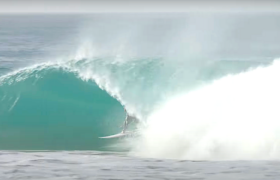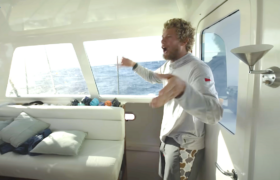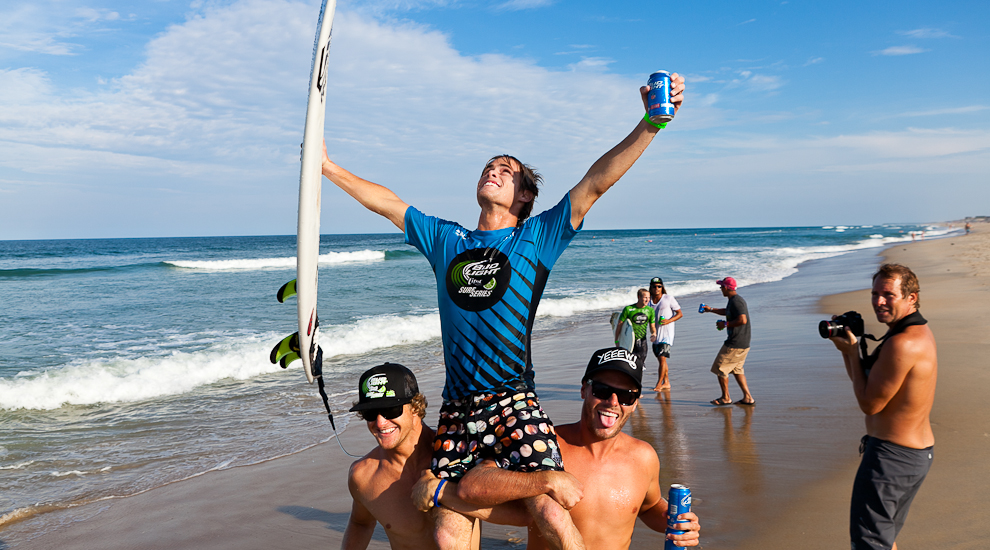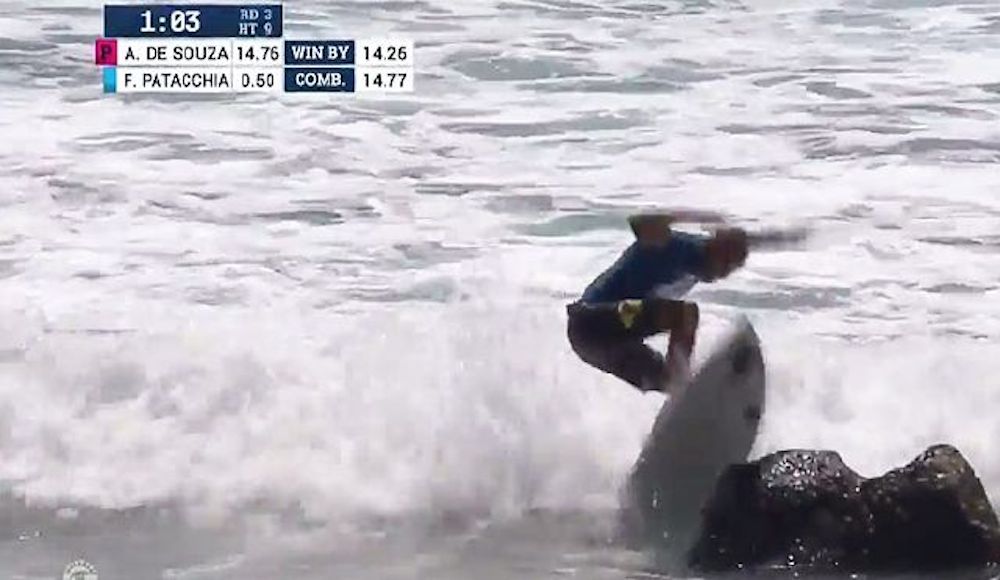And therefore we should ice a few man-eaters. Here’s why…
On Saturday, broadsheet newspaper The Australian, published an anti-shark piece, one in a series by Fred Pawle.
The story is called Surfing, the pursuit that opened war-torn eyes to natural pleasure and it is tumescent with surfing’s rich history. It’s this history, writes Pawle, that puts the surfer above the man-eating shark in importance, at least when it comes to near coastal waters.
Considering the story is locked behind a (not altogether unreasonable) pay-wall, let’s examine as much as is legal to print online:
“When people say ‘stay out of the water’, they are almost always referring to surfers. That’s not only because surfers are the most prominent victims and critics of sharks but are in the ocean for purely hedonistic, and therefore insignificant, reasons.
You want to manage shark numbers so you can go … surfing? Gaia’s worshippers are infuriated by any form of deliberate ‘human intervention’ on the environment, but they are especially scornful of anyone whose objectives are merely recreational.
“What these landlubbing preachers fail to realise is that surfing helped shape the happy, optimistic, prosperous world in which they live. Surfing was, according to some historians, the discovery that helped awaken European civilisation from its puritanical, introspective, morbid dreariness and gave it a new reason to love life.
“When French explorer Louis-Antoine de Bougainville sailed into Tahiti in 1768, he discovered what he thought was the Garden of Eden, where food was plentiful and life was leisurely; the moderate climate made clothing barely necessary; the people were athletic, healthy and beautiful; and polygamous sex was a recreational activity. “The very air which the people breathe; their songs, their dances, almost constantly attended with indecent postures, all conspire to call to mind the sweets of love,” he wrote in his memoir. “Accustomed to live continually immersed in pleasure, the people of Tahiti have acquired a witty and humorous temper, which is the offspring of ease and of joy.”
“Surfing was an integral part of this strange new culture. William Anderson, a surgeon on Captain James Cook’s journey to Tahiti, described in 1777 a man riding waves in a canoe. It is thought to be the first written account of surfing, and ends thus: “I could not help concluding that this man felt the most supreme pleasure while he was driven on so fast and so smoothly by the sea.”
If Fred Pawle’s name rings familiar, it’s because he has a gilded career as a writer. In 2008, he was nominated for a Walkey Award, Australia’s highest journalistic honour, for a story I commissioned about surfing’s first openly gay pro surfer, Matt Branson.
Pawle also broke the story of surf photographer Paul Sargeant’s, how do you want to phrase this…his fall from grace?
Lately, he’s been painting an apocalyptic picture of the Byron Bay area as besieged by great white sharks. He ain’t wrong, at least according to my sources.
“But, sadly,” he writes, “the ‘stay out of the water’ crowd is winning. Many surfers in northern NSW are adhering to the advice and leaving their boards at home. If they are surfing, they are seeking the most crowded breaks, which is not what surfing is about. The effects on coastal communities, especially those relying on surf tourism, has been significant and unnecessary. If anything, it is the environmentalists who are being the most self-indulgent here. And they are forcing ocean-lovers to pay the price.”
Is Fred Pawle an audacious visionary or is he a puss-puss who shouldn’t watch so many shows on Shark Week?
(Read here, if y’subscribe)






